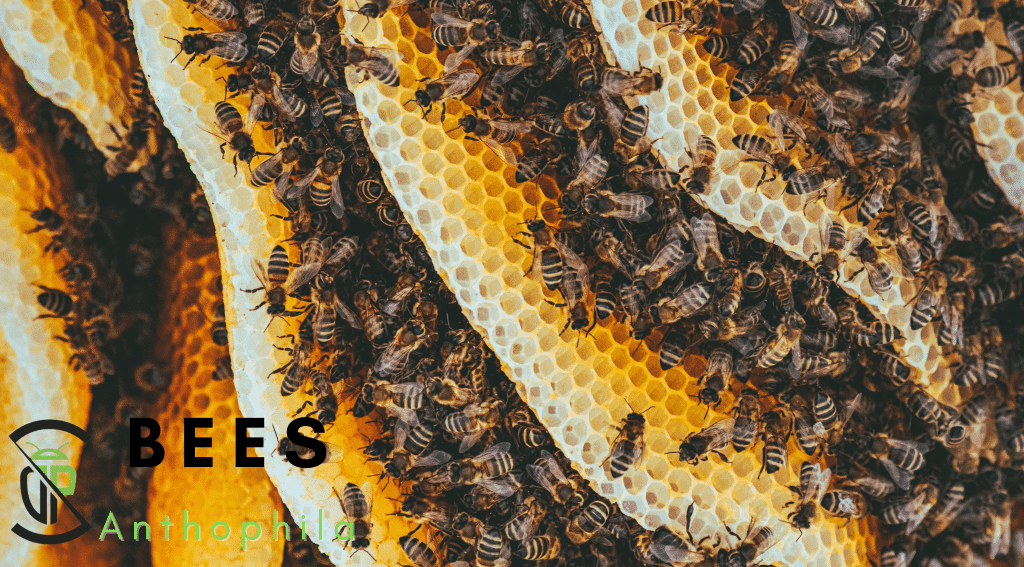Bees in South Florida


Bees play a crucial role in our ecosystem as pollinators, but when they nest too close to human activities, they can pose significant risks. South Florida is home to various bee species, including honey bees and Africanized honey bees, which can become a nuisance or even a threat if their nests are disturbed. Dade Pest Solutions offers professional bee control services to manage and safely remove bee populations from residential and commercial properties.
Common Bee Species in South Florida
Honey Bees
- Identification: Honey bees are about ½ inch in length, with a hairy, rounded body. They are typically golden-brown with black stripes.
- Habitat: They nest in hollow areas of trees, walls, sheds, and attics. They are most active in warmer months, especially around flowers.
- Behavior: Generally non-aggressive but will sting if threatened. They leave their stinger in the skin, which can cause pain and swelling.
- Risks: Can cause structural damage by building nests in voids. Stings can be painful and potentially dangerous to those with allergies.
Africanized Honey Bees
- Identification: Similar in appearance to regular honey bees but slightly smaller.
- Habitat: Found in similar environments as honey bees, including trees and sheltered areas.
- Behavior: Highly aggressive and known to attack in swarms. They can chase perceived threats for long distances.
- Risks: Their aggressive nature makes them more dangerous, especially in large numbers. They can cause multiple stings, leading to severe allergic reactions or even fatalities.
Bee Control Solutions
At Dade Pest Solutions, we provide comprehensive bee control services that prioritize safety and humane treatment. Our approach includes:
- Identification: Accurately identifying the bee species to determine the most effective removal strategy.
- Removal: Using professional techniques to safely remove and relocate bee colonies. This may involve live removal by registered beekeepers or eradication by licensed pest control operators.
- Prevention: Implementing measures to prevent future infestations, such as sealing entry points and educating homeowners on how to avoid attracting bees.
Legal Considerations
In Florida, the removal of honey bee colonies is regulated to ensure safety and environmental protection. According to the Florida Department of Agriculture and Consumer Services (FDACS), beekeepers performing live removals must be registered, and only licensed pest control operators can legally eradicate bee colonies.
FAQ
Q: How do I know if I have a bee infestation?
A: Signs of a bee infestation include seeing a large number of bees entering and exiting a specific area, hearing buzzing sounds within walls, and finding honeycomb structures in attics or other sheltered spaces.
Q: Are all bees dangerous?
A: Not all bees are dangerous. While honey bees are generally non-aggressive, Africanized honey bees are highly aggressive and pose a greater risk. It is important to avoid disturbing any bee colony and to contact professionals for removal.
Q: Can I remove a bee colony myself?
A: It is not recommended to remove a bee colony yourself due to the risks involved. Professional bee removal ensures safety and compliance with legal regulations.
Q: How can I prevent bees from nesting on my property?
A: Preventative measures include sealing cracks and crevices, removing potential nesting sites, and avoiding leaving food or sugary substances outside.
Q: What should I do if I encounter a swarm of bees?
A: If you encounter a swarm of bees, stay calm and slowly move away from the area. Do not swat at the bees or make sudden movements. Contact Dade Pest Solutions immediately for professional assistance.
Q: How often should I schedule bee control services?
A: The frequency of bee control services depends on your location and the likelihood of infestations. Regular inspections and preventive measures can help maintain a bee-free environment. For more information or to schedule a free consultation, contact Dade Pest Solutions today. Our team of experts is dedicated to ensuring your property remains safe and bee-free.
